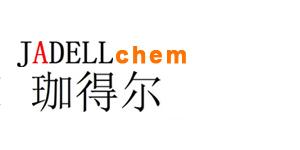Recombinant Mouse Tumor Necrosis Factor-alpha/TNFSF2 是一种很强的促炎性细胞因子,在免疫系统中具有调节功能,同时在炎症,细胞增殖、分化及凋亡过程中发挥着重要作用。
Synonyms
rMuTNF-α/TNFSF2; TNF-alpha; Cachectin; DIF; TNFA; Differentiation-inducing factor ; 重组小鼠肿瘤坏死因子-α/TNFSF2
Species
MouseSource
E. coli Accession
P06804 Gene ID
21926 Molecular Weight
Approximately 17.3 kDa AA Sequence
LRSSSQNSSD KPVAHVVANH QVEEQLEWLS QRANALLANG MDLKDNQLVV PADGLYLVYS QVLFKGQGCP DYVLLTHTVS RFAISYQEKV NLLSAVKSPC PKDTPEGAEL KPWYEPIYLG GVFQLEKGDQ LSAEVNLPKY LDFAESGQVY FGVIAL Biological Activity
The ED50 is <0.05 ng/mL as measured by murine L929 cells, corresponding to a specific activity of >2.0 × 107 units/mg. Appearance
Lyophilized powder. Formulation
Lyophilized after extensive dialysis against PBS. Endotoxin Level
<0.2 EU/μg, determined by LAL method. Reconstitution
Reconstitute the lyophilized recombinant Murine Tumor Necrosis Factor-alpha/TNFSF2 (rMuTNF-α/TNFSF2) to 100 µg/mL using ddH2O or PBS. Storage & Stability
Lyophilized recombinant Murine Tumor Necrosis Factor-alpha/TNFSF2 (rMuTNF-α/TNFSF2) is stored at -20°C. After reconstitution, it is stable at 4°C for 1 week or -20°C for longer. It is recommended to freeze aliquots at -20°C or -80°C for extended storage. Shipping
Room temperature in continental US; may vary elsewhere. Background
Tumor necrosis factor α (TNF-α, also known as cachectin) is a strong pro-inflammatory cytokine playing an important role in the immune system during inflammation, cell proliferation, differentiation and apoptosis. TNF-α is type II transmembrane protein that can be expressed in both membrane-bound and secreted forms. Receptors for TNF-a are part of TNF receptor (TNFR) superfamily, with characteristic intracellular segment, a transmembrane domain, and an extracellular ligand-binding domain. They are type I transmembrane glycoproteins characterized by a cysteinerich motif (up to 40 aminoacids) repeated 2-6 times in the extracellular N-terminal domain[1]. |



